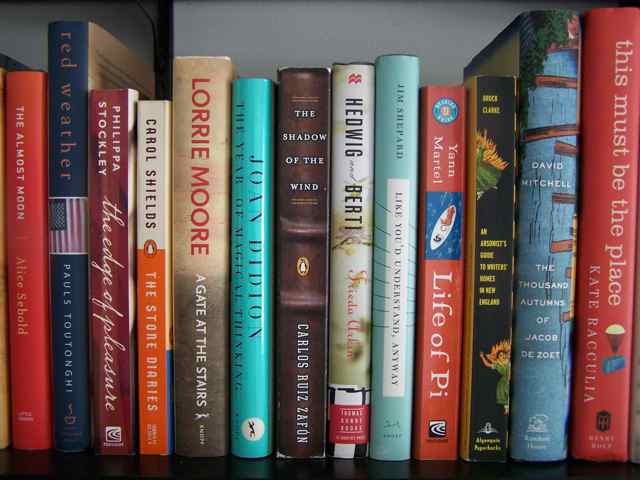 Edgar Kellogg, the main character of The New Republic, a novel by Lionel Shriver, is a striver and a fan –the salutatorian instead of the valedictorian, the vice president, the second-place finisher. He’s tired of doing the admiring; he wants to be admired. His place near the top of the legal profession means nothing to him now that he’s made it there, so he throws it all in to take up the calling of his old English public school idol Toby Falconer – foreign correspondent for the National Record.
Edgar Kellogg, the main character of The New Republic, a novel by Lionel Shriver, is a striver and a fan –the salutatorian instead of the valedictorian, the vice president, the second-place finisher. He’s tired of doing the admiring; he wants to be admired. His place near the top of the legal profession means nothing to him now that he’s made it there, so he throws it all in to take up the calling of his old English public school idol Toby Falconer – foreign correspondent for the National Record.
Author Lionel Shriver (an American woman who lives in England) has expressed some exasperation in the past with publishers who insist on putting “girly” covers on her novels, saying it’s “like stuffing a rottweiler in a dress.” They’ve finally listened with the cover of The New Republic, a book that the author finished in 1998 and couldn’t get published. (It’s not that it’s poorly written –Lionel Shriver’s We Need to Talk About Kevin got a lot of rejections, too, but when finally published, became a critically acclaimed bestseller – it’s more because of the subject matter, terrorists and their political wing who are more inept than intimidating, and the characters, who are all flawed and unlikeable in various ways.)
The New Republic is set in Barba, an imaginary peninsula of Portugal, where a band of terrorists with the unfortunate name S.O.B. has sprung up, demanding independence for Barba, the most godforsaken province you could ever imagine, and responsible for barbarous acts of terrorism in Europe. Edgar lands his first real gig as a foreign correspondent in Barba, a backwater that only interests the rest of the world when the S.O.B. and its political arm, O Creme de Barbear, make the news after committing some new atrocity.
To his vast annoyance, when he arrives in Barba, Edgar finds himself following in the footsteps of another outsized, charismatic personality like Toby Falconer back in high school. Barrington Saddler’s English accent, animal magnetism, insider’s knowledge, and sparkling repartee, charmed the females in Barba’s journalistic enclave and had the male reporters vying for his approval, until Saddler suddenly and mysteriously disappeared. At first, Saddler’s absence makes more of an impact on the enclave of foreign correspondents than Edgar’s presence, but Edgar is staying in Saddler’s house, eating his leftover food, and becoming attracted to Saddler’s former lover, Nicole. The more Edgar learns about Saddler, Barba and the S.O.B., the more he learns about becoming larger-than-life himself.
Lionel Shriver writes unsettling books. Her characters are always human, rarely heroic. They make mistakes; some are big and disastrous ones. The New Republic is funny, as biting satire should be, but also frightening in how plausible the outrageous scenario she sets up seems.
Not recommended for fans of women’s fiction (!) but if you liked The Imperfectionists by Tom Rachman, you might also like The New Republic‘s portrayal of foreign journalists.
The New Republic
Shriver, Lionel
HarperCollins
March 2012
978-0-06-210332
Disclosure: I read most of this book as an e-galley from the publisher through NetGalley, but it expired before I finished, so I read the ending from a public library copy of the book.
a

I really liked We Need to Talk about Kevin but I’m on the fence about this one. I am a fan of women’s fiction, so I’m leaning toward the no side of the fence.
I didn’t like We Need to Talk About Kevin that much, but I don’t think the average women’s fiction fan would like it either! In women’s fiction, mothers always like their children. 🙂
[…] More Than Satire: The New Republic by Lionel Shriver (baystatera.com) […]